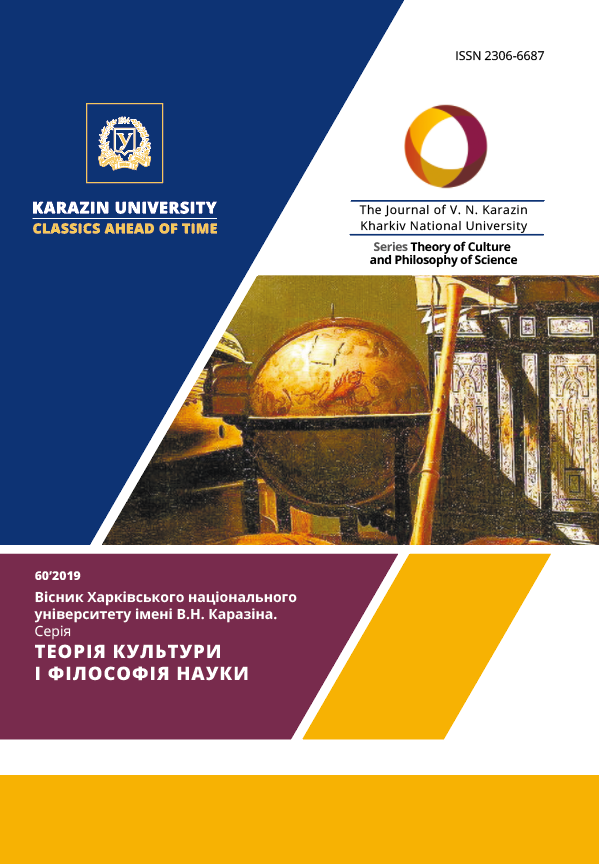The concept of "despair" by S. Kierkegaard in rationalistic and postmodernist reflection
Abstract
The concept of "despair" of S. Kierkegaard in the rationalist and postmodern reflection is considered. It is noted that consideration of the reflection on Kierkegaard’s writing heritage demonstrates the contemporality of the ideas of Kierkegaard and representatives of the philosophical trends of the twentieth century. This is due to the relevance of the comparative "re-reading". In conditions of the crisis of Christianity S. Kierkegaard, combining in one person the philosopher, theologian and writer, deliberately violated the classical demand for purity of the genre in the name of the creation of a-system anthropology of change, which involves the movement-formation of an existential subject to faith. Care for the reader, to which S. Kierkegaard ultimately refers, involves the use of an indirect form of communication as the only means of attracting the reader to the aporias of existence. To the same aims serve such concepts — existentials in its negative (pathetic, lyrical) dialectics as fear, despair, repetition, which differ from any formal-logical structures due to rhetorics of the image and character specificity.
Representatives of rationalist philosophy, Theunissen and Habermas, categorizing despair in the discourse of negative theology, considered it as a condition for the possibility of intersubjectivity, by asking and solving the problem of the Other, which has become ultramodern one again.
The category of despair, which is thoroughly considered by Kierkegaard, becomes a subject of the religious-philosophical description. Increased attention to the very form of the work and the context of its appearance (in the particular case - "Concluding Unscientific Postscript") distinguishes Kierkegaard from contemporaries and synchronously leads him into a deconstructionist camp, that allows some thinkers to mark him as a Christian postmodernist. For Derrida, the aforementioned work is a model of a "high-quality" simulacrum that produces an over-textual excess of meanings. But for Kierkegaard as a Christian, this is another form of despair.
Downloads
References
Усманова А.Р. Умберто Эко: парадоксы интерпретации. Минск: Изд-во БГУ «Пропилеи», 2000. 199 с.
Caputo J. D. The prayers and tears of Jacques Derrida: religion without religion. Indiana, 1997. 374 p.
Habermas J. Communicative Freedom and Negative Theology // Kierkegaard in post/modernity. Indiana University Press, 1995. P. 182-198.
Kierkegaard S. Concluding Unscientific Postcript. Prinseton: Prinseton University Press, 1941
Pyper H. Beyond a Joke: Kierkegaard’s Concluding Unscientific Postscript as a Comic Book// Post-secular Philosophy: Between philosophy and theology.— London, New york, 1998. P.186-210.
Ward G. Barth, Derrida and The Language of Theology. Cambridge: Cambridge University Press, 1998. 258 p.




